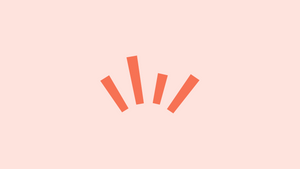Interreligiöser Frauendialog
In the organizer's words:
Part 2 of the series of events for the International Weeks against Racism 2025.
"The fight for emancipation today is not between men and women, but between modern and arch-conservative people!" Petra Bosse-Huber, Protestant theologian
The fact that the position of women in the world's major religions is extremely problematic is being demonstrated to us again and again in today's world. In South and North America in particular, we are observing developments that show that not only the image of women, but also the options for women in society are being restricted by supposedly Christian values. In the USA, the now significantly more difficult option of abortion is partly due to an arch-conservative Christian foundation. In Latin America - where in many countries the fundamental conservative churches are experiencing strong growth - but also in European society, the Christian discourse shapes the image of women. The situation is similar in Islam and Judaism. Men have been in charge in all world religions for thousands of years. To this day, women have to fight to no longer be perceived as a subordinate gender. Achieving equal rights and equality within institutions still appears to be a very difficult undertaking today.
The "Interreligious Women's Dialogue" was launched by Dr. Corina Toledo for the first time in 2016 as part of the "High Peace Festival" and the "Perception of Women" exhibition in Augsburg and has since become an institution there. In Munich, we are also inviting female experts from the three most important monotheistic world religions - Judaism, Christianity and Islam - to meet with respect and on an equal footing and to discuss questions of faith and their respective religious practices. In a panel discussion, we want to analyze the discourse on the role of women in the religions in more detail and show how religiously motivated oppression can be broken down.
- What can the speakers tell us from their personal experience with regard to their faith?
- How do the speakers perceive the respective female figures in their religion? Which female religious figures are role models for them?
- How do the speakers experience the traditionally institutionally organized subordination of women to "male authority" within their religious communities - how do they interpret the respective passages in the Torah, the Bible and the Koran?
- What are the positions on the change towards a "new perception of the gender order" in the respective faiths?
- Do the speakers see the topics of sexuality, homosexuality and diversity as open to interpretation in the context of their "holy texts"?
- On which myths or stereotypes about femininity and thus morality and taboo has the hegemony of male priests been based for thousands of years?
- How can the narratives of the dichotomous figure of the saint, virgin, mother versus libertine, prostitute, heretic or witch be transformed?
- How do the speakers see the cementing of power relations in the monotheistic world religions?
- What are their views on political feminism and feminist demands for fundamental change?
The speakers talk about their own lives, which are shaped by their religion - and about the role and significance of women in religion and society. Together with the audience, they will reflect on current discourses and developments, analyze and examine how the monotheistic world religions deal with modern issues of gender order, sexuality, homosexuality and diversity in connection with the "holy texts". It is important to include various target groups and organizations such as Christian associations, Muslim associations and communities, churches, women's organizations and universities.
This content has been machine translated.












